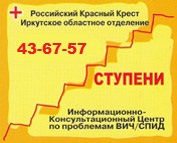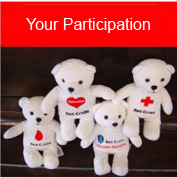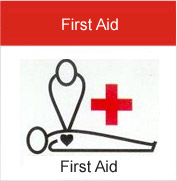The Red Cross Movement is providing assistance without discrimination as to nationality, race, religious believes, class or political opinions.
The International Red Cross and Red Crescent Movement provides aid in almost all countries around the world and numbers more than 100 million employees and volunteers. The Movement follows seven fundamental principles: humanity, impartiality, neutrality, independence, voluntary service, unity, and universality.
The International Red Cross and Red Crescent Movement comprises the following:
- The International Committee of the Red Cross (ICRC)
- The International Federation of Red Cross and Red Crescent Societies (IFRC)
- National Red Cross and Red Crescent Societies
The governing bodies of the Movement are:
- The International Conference of the Red Cross and Red Crescent - International Conference
- The Council of Delegates of the International Red Cross and Red Crescent Movement
- The Standing Commission of the Red Cross and Red Crescent - Standing Commission
The ICRC, the Federation, and the National Societies are independent organizations. Each has its own individual status and exercises no authority over the others. Delegates from these governing bodies meet in council sessions every two years. As a rule, they also meet every four years with national representatives from the Geneva Conventions on the International Conference of the Red Cross and Red Crescent. In the time period between these regular two- and four-year sessions, a Permanent Commission oversees the operations of the International Conference.





